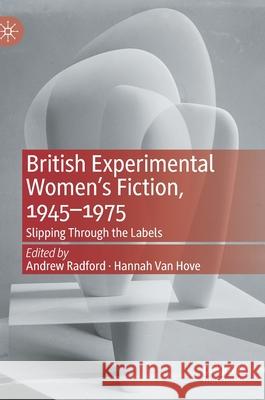British Experimental Women's Fiction, 1945--1975: Slipping Through the Labels » książka
topmenu
British Experimental Women's Fiction, 1945--1975: Slipping Through the Labels
ISBN-13: 9783030727659 / Angielski / Twarda / 2021 / 292 str.
Kategorie:
Kategorie BISAC:
Wydawca:
Palgrave MacMillan
Język:
Angielski
ISBN-13:
9783030727659
Rok wydania:
2021
Wydanie:
2021
Ilość stron:
292
Waga:
0.51 kg
Wymiary:
21.01 x 14.81 x 1.91
Oprawa:
Twarda
Wolumenów:
01
Dodatkowe informacje:
Wydanie ilustrowane











